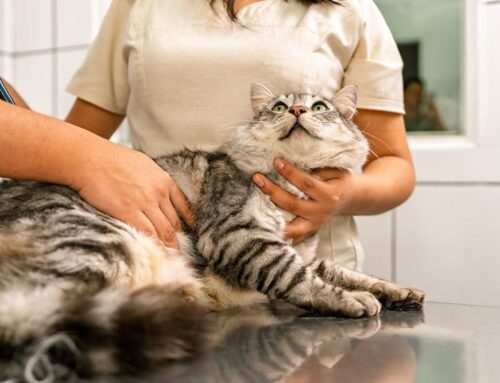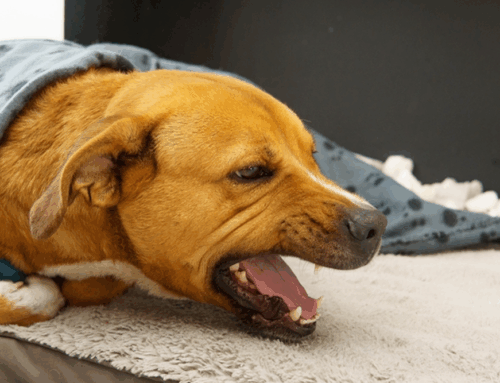What’s that strange lump growing on your dog’s belly? If you’re getting increasingly concerned about the growing mass on your beloved dog’s body, then it’s time to learn about lipomas. These masses can be distressing to pet owners and pets alike, especially when you don’t know what’s wrong.
So what are lipomas, and is your dog’s health in danger?
First, we have some good news. While lipomas are a common type of canine tumor, they are non-cancerous tumors, which means they are usually benign. When the endocrine and immune systems are not functioning at full capacity, the body does what it can to encapsulate any unwanted material and eliminate it through the largest excretory organ, the skin. Lipomas and other fatty tumors are usually a result of that process.
It’s estimated that 1.7 million dogs in the United States are treated for lipomas every year. There are a variety of reasons that your dog will develop lipomas, but here are three of the most common contributors to these canine tumors.
Poor diet
Your dog’s diet can actually lead to the development of a lipoma. Carbohydrates, chemical preservatives, and other toxins found in processed food all contribute to fatty tumor growth. Water is also an important part of your dog’s diet. If you can, you should avoid tap water because the chlorine can damage your dog’s thyroid and upset their endocrine system.
Drugs and chemicals
When you go to animal hospitals and emergency veterinarians, your dog will get treated for issues like fleas, ticks, heartworm, and other parasites that can harm your dog (the female flea can lay up to 2,000 eggs in her lifetime!). However, you should avoid treatments that expose your pup to unnecessary drugs and chemicals. In rare cases, these can lead to lipoma growth.
Environmental factors
Your dog’s environment is a major source of toxins, especially if pesticides or herbicides are present in your area. In the spring and summer, many people are spraying their yards for pests like ants, fleas, and ticks. Unfortunately, these sprays can affect your furry friend too. Most experts recommend not using these products in your home or yard if you have pets. When you walk your dog in a place that’s likely to have herbicides and pesticides, wash your dog’s feet off with soap when you get home to prevent them from licking and absorbing the toxins through the pads on their paws.
Diagnosing Lipomas in Dogs
Most lipomas are diagnosed during routine pet wellness visits. Your veterinarian or animal hospital will do a complete physical exam, and a typical checkup will include an examination for obvious masses. However, if you have noticed a growth on your pup, you can schedule an appointment to find out if it is harmful. During the appointment, your veterinarian will use a needle to take a sample of the tumor. Further testing will reveal whether this is a non-cancerous lipoma or something more serious.
What Happens Next?
In some cases, surgery will be required to remove the mass from your pet’s skin. A computed tomography (CT) or magnetic resonance imaging (MRI) may be needed to understand the mass and tissue location before surgery can be completed. Because lipomas are not usually dangerous, your vet may recommend against surgery, which may be far riskier than the growth itself. This is especially true for older dogs who may not cope well with surgery. While the growing tumor may be distressing, it’s not necessarily dangerous.
If you think your pet is affected by a lipoma, then certain toxins in their food, medication, or their environment may be to blame. If you’ve noticed a new growth on your dog, then it might be wise to get to an emergency animal hospital right away. Hopefully, the canine tumor you’ve found is nothing to worry about!
You don’t need to wait for an emergency to become familiar with our veterinary services. Get the best care you can find for all of your pet’s health needs. We are more than just an animal hospital. Call 520-888-3177 for more information about our specialty services on site, available 24 hours a day, seven days a week.







Leave A Comment